Keywords: Acceptance
There are more than 200 results, only the first 200 are displayed here.
-
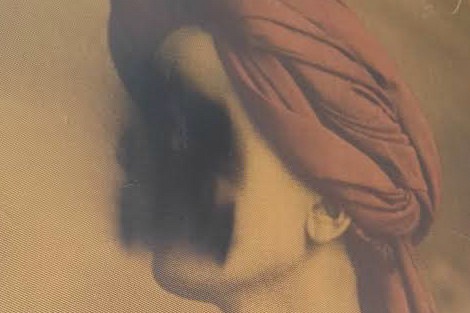
AUSTRALIA
- William Scates Frances
- 11 May 2016
13 Comments
Dismantling white myths about history is a positive step, a potential pin in an ethnic nationalism which lingers here. Yet these posters pop up often not in bastions of that denial, but rather on walls across Western Sydney, in suburbs whose demographics hardly tell tales of fortresses of white privilege. It seems that, less than a project to dismantle white myths about history, the popularity of these stories is more an attempt to bring non-white Australians into a new myth in the making.
READ MORE 
-
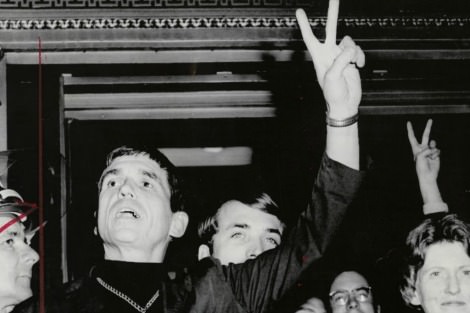
RELIGION
- Andrew Hamilton
- 04 May 2016
18 Comments
By many United States Jesuits including military chaplains, Dan Berrigan was seen as a divisive figure. I also found his actions challenging. I was still to move from my concentration on the goals of military action to focus on what happens to people who make war and have it made on them. Berrigan and others helped me to see the dishonesty in the conduct of the Vietnam war, the cost to Vietnamese civilians and to soldiers on both sides, and the corruption of ethical sensitivity in both societies.
READ MORE 
-
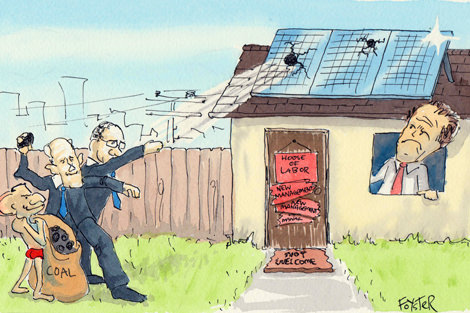
ENVIRONMENT
It was as if Australian politics had regressed four years overnight. No sooner had Labor released its new climate change plan than the Coalition was resuscitating Tony Abbott's 'carbon tax' line. The Coalition's attempt to revive the defining debate of the 2013 federal election won't work. As other commentators have noted, Labor's plan has been carefully crafted to avoid the carbon tax sledge. More importantly, external factors have changed to make a scare campaign less potent.
READ MORE 
-
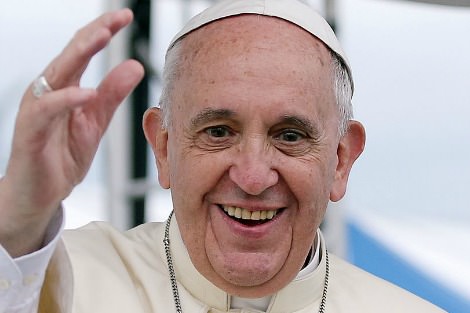
RELIGION
- Andrew Hamilton
- 11 April 2016
19 Comments
As Francis begins his fourth year in office, questions are raised as to whether the changes he has brought to the church will last beyond his time in office. Some argue that because he has made no significant changes in governance, his changes will not survive him. His successors and the Curia will be free to restore former expressions of church life. This argument highlights the need to embody vision in institutional structures. But good structures alone do not ensure the continuation of vision.
READ MORE 
-
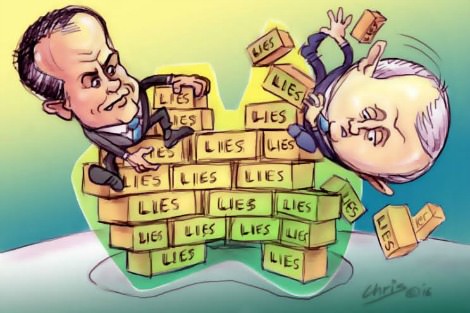
AUSTRALIA
- Justin Glyn
- 11 April 2016
10 Comments
We got a lesson in the art of language from the Minister of Immigration, Peter Dutton, whose redefinition of the word 'detention' was reminiscent of Humpty Dumpty's remark in Alice Through the Looking Glass: 'When I use a word it means just what I choose it to mean, neither more nor less.' We are social creatures who make real decisions based on the representations of others. Once we know we cannot expect the truth from each other, especially those who govern, society can no longer function.
READ MORE 
-

INTERNATIONAL
- Gillian Bouras
- 06 April 2016
7 Comments
My grandson Nikitas is ten. When his name was chosen I was haunted by memories of Russian leader Khruschev and his long-ago shoe-banging performance at the United Nations. My son and daughter-in-law patiently explained that their son was to be called after Nikitaras, a hero of the Greek War of Independence. Thankfully, young Nikitas does not divide the world into friends and enemies, at least not so far. But he is very competitive; perhaps his name, which means invincible, influences his outlook.
READ MORE 
-
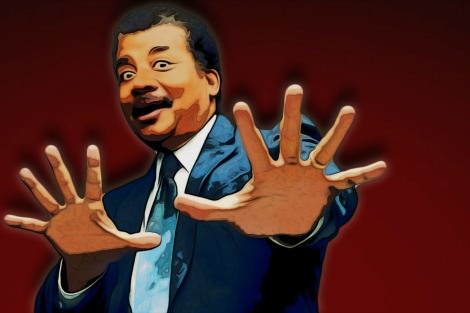
MEDIA
- Ketan Joshi
- 06 April 2016
7 Comments
When Alan Alda was 11, he threw a simple inquiry to his teacher. What's a flame? The response he received was less than satisfying. 'All I heard from the teacher was "it's oxidation". That didn't explain anything to me.' It's a neat illustration of a modern problem. Merely presenting over-simplified factoids is no longer sufficient in a world filled with phenomena like climate denial and the anti-vaccination lobby. For science to be communicated effectively, it needs to spark passion and excitement.
READ MORE 
-

AUSTRALIA
- Andrew Hamilton
- 17 March 2016
10 Comments
In a month in which some politicians trumpeted their own virtues and others their opponents' vices, one traditional virtue went unserenaded: humility. The reticence is unsurprising. Humility is associated with timidity, self-doubt and a reluctance to put oneself forward. Successful politicians project themselves, are confident, competitive, and lead like strong men. This view merits challenge. It assumes a corrupted form of humility, and exempts politicians from ethical reflection about their craft.
READ MORE 
-
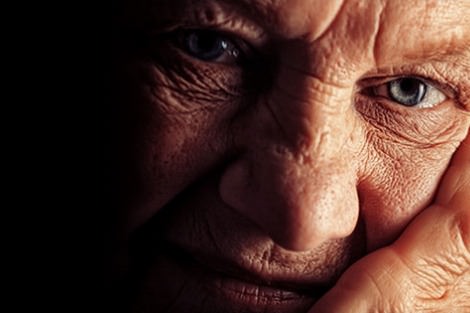
AUSTRALIA
- Gillian Bouras
- 23 February 2016
7 Comments
Elder abuse resembles child abuse in its iceberg qualities: both have received little attention until comparatively recently. In the case of elder abuse, very few cases ever come to court: old people are as helpless as children, similarly unable to plead their own cases, and afraid to: they have little power. The Yiddish proverb springs to mind: If you can't bite, don't show your teeth. The most consistent offenders, sad to say, are family members, who are often adept at exploiting the fear that is part of ageing.
READ MORE 
-
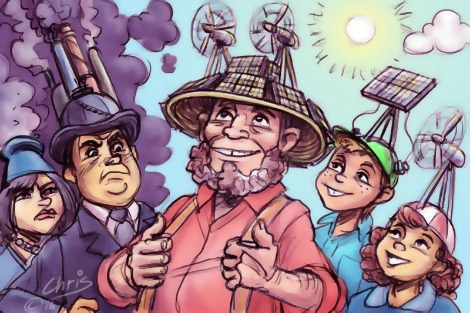
AUSTRALIA
- Ketan Joshi
- 17 February 2016
7 Comments
A government campaign declares 'we've always been good at having ideas. Now we need to get better at innovation: turning ideas into successful products and services.' The message is that we are on the brink of a technological revolution, driven by government. But really we've some way to go. As we have seen with wind turbines, the communities that host new technologies can react with anger and fear. If they are left out of the process, visions of grand, sweeping change can be undermined.
READ MORE 
-
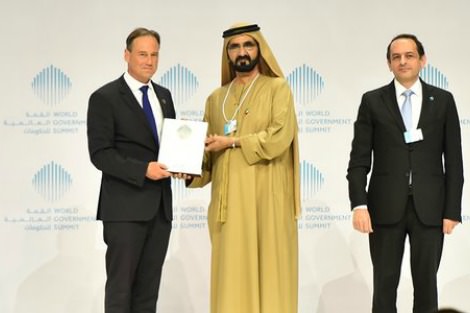
ENVIRONMENT
- Greg Foyster
- 15 February 2016
16 Comments
It would have made a great April Fools joke, if it wasn't February. On Wednesday, we woke to the news that Greg Hunt, environment minister in the most anti-environment government in Australian history, had been awarded 'World's Best Minister' at an international summit in Dubai. But maybe the award had nothing to do with Hunt's track record at home. In the grubby way of politics everywhere, maybe it is a favour returned. A thank you from an oil-rich nation for making it look good in the past.
READ MORE 
-
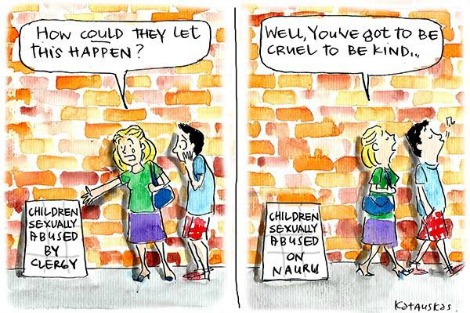
CARTOON
- Fiona Katauskas
- 10 February 2016
5 Comments
This week's offering from Eureka Street's award winning political cartoonist.
READ MORE 